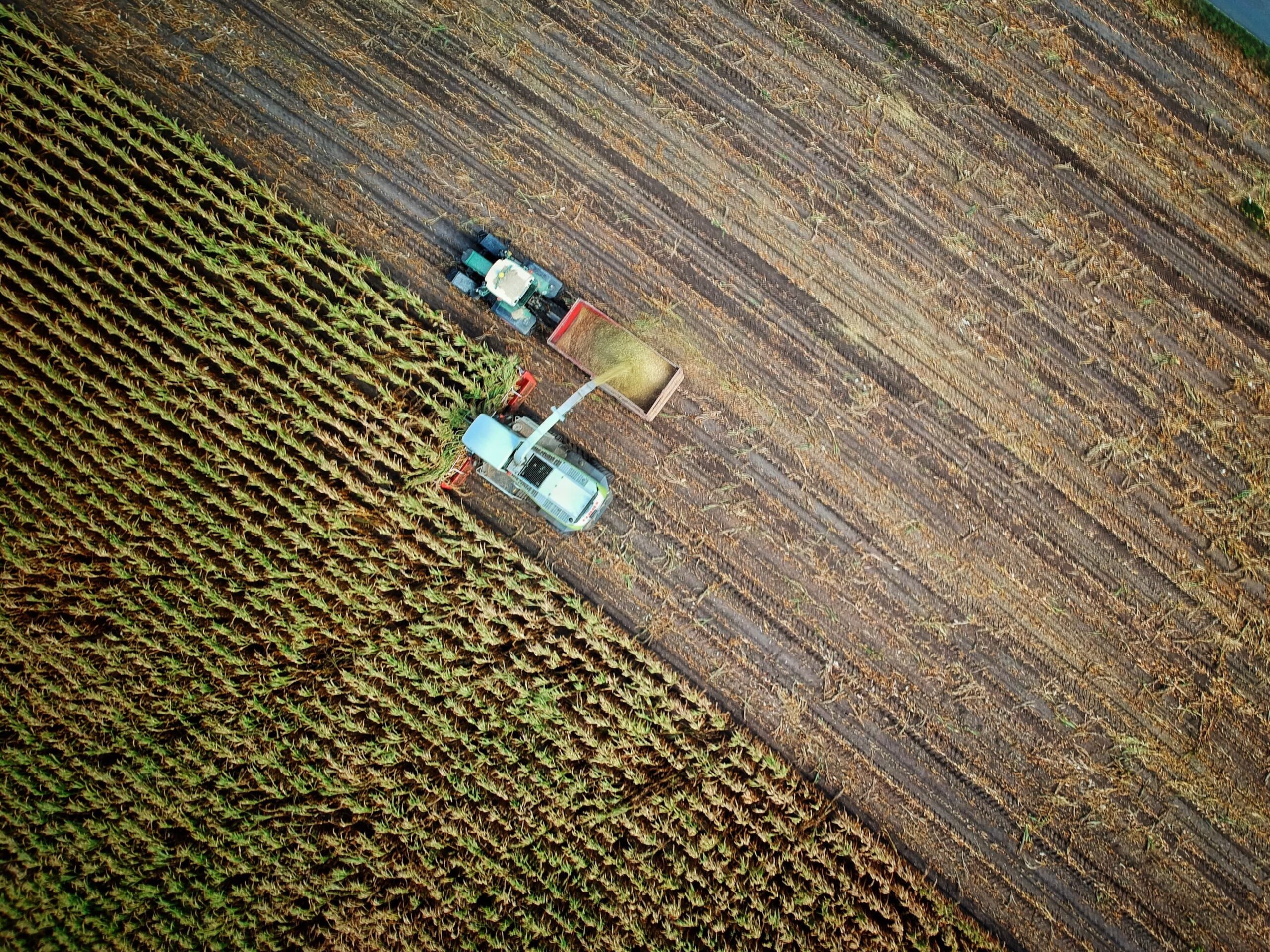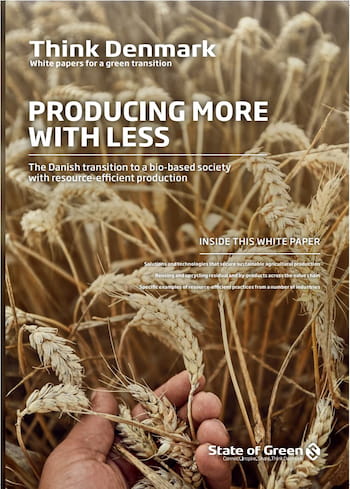Download our publication from producing more with less
This article is part of our publication ‘Producing More with Less’
Download nowPerspective
Bioenergy


The Danish Bioeconomy Panel is established by the Danish government with the aim to harvest potentials of the bioeconomy, to the benefit of future
earnings, the environment and climate. The Panel consists of scientists from leading universities and representatives from commercial interests.
The Danish Bioeconomy Panel provides recommendations to the government on a variety of different aspects of the bioeconomy. The bioeconomy is an agenda for innovation, growth and sustainability. More value can be added to existing resource utilisation, by using biorefining technologies to existing sources of raw material – both virgin material and side streams – and the co-production of bio-based products such as food, feed, materials, chemicals and pharmaceuticals.

This article is part of our publication ‘Producing More with Less’
Download nowIn June 2018, the panel launched its recommendations to the Danish government on new value chains for proteins, “Proteins for the Future”. Denmark is a net importer of proteins for feed purposes. Approximately one million tonnes of protein for feed is imported. The consumption of animal protein is expected to increase by 70 per cent by 2030. This is coupled with increasing demand in Denmark and Europe as a whole for new protein sources, which are produced locally, are non-GM and/or are organic. Finally, a growing share of consumers are demanding plant based alternatives to animal proteins.
The key message from the Danish Bioeconomy Panel is that within a five-year timeframe, new protein sources will be capable of competing with existing protein sources, both in terms of price and quality. Furthermore, it will be possible to substitute as much as one third of the proteins imported today from third countries with more sustainable local alternatives, which will generate positive environmental and climate impacts.
In order to achieve this, the panel has composed 15 key recommendations to the Danish government on how to improve framework conditions, support research & development initiatives and secure coherency within and between new protein value chains. The main part of the new proteins will come from well-known agricultural crops suchas grass-clover and legumes.
These crops are known for their high content of protein with an attractive amino acid composition. The challenge that has to be overcome is to refine the protein content in grass and grass-clover into a competitive and effective feed product that can be benchmarked with other protein products on the market. Grass and clover are not only attractive sources of protein for feed purposes. These agriculture crops have positive effects on the climate and the environment, due to low levels of nitrogen leaching and greenhouse gas emissions. They may also be beneficial from a health and nutrition perspective.
publications
Resource efficient production
+15